The impact of our original forays into NBJ have been many and varied over the years since and they were only reinforced by the dislocation of supply chains caused by covid. To be honest our (OK my) shopping habits had become pretty shambolic by the time the idea of NBJ had come to me. Particularly in terms of food and other consumables that we are likely to get down at our local shops. What this meant was that each day I would go for a walk, and call in at the local shops, possibly pick up a coffee, then visit the supermarket, butcher or greengrocer to pick up whatever was needed that day.
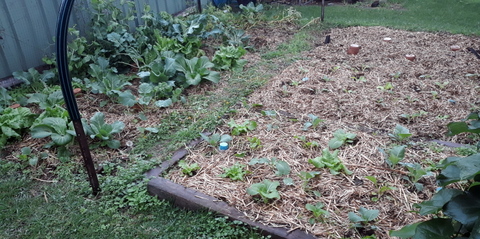
Our system grows well, but we still need to buy stuff in
This had a number of results including stuff going out of date because the food areas were not tidy and regularly checked, stuff not being there when we wanted to make a particular dish and running out of frequently used staples. Also, because I was not keeping an eye on the food storage areas they became pretty choked up and poorly organised. This, in turn, meant that we were wasting money and food that went out of date or just plain off and had to be thrown, or buying perishable stuff we already had.
In the lead up to the first NBJ we started some processes that carry on to this day, and one of the major ones is how we shop.
As mentioned elsewhere, we first did some research to actually record what foods and consumables we usually bought, and what we had on hand at the time (‘buying audit’ and ‘pantry audit’) so we could see where bulk buying would work out best for us, but we also changed the way we shopped.
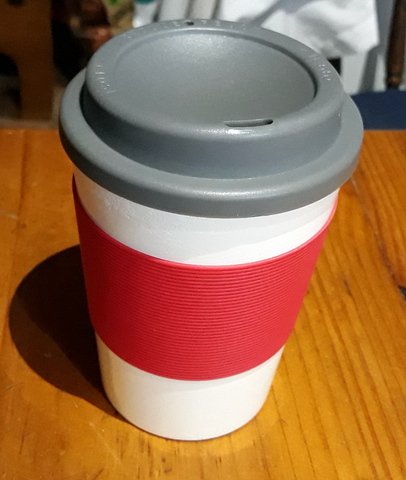
Takeaway coffee - enjoyable, but the costs add up
Shopping Process
Rather than a bit here and a bit there we decided to do a single shop every two weeks. This had a number of effects –
- It reduced the number of shop-bought coffees I had a week, which was not good (from my point of view) but saved us over $1000 per year.
- It reduced the number of impulse buys and getting stuff that we wound up not using because it turned out to be not right for us, even if it was ‘cheap’.
- During the time of covid it reduced the amount of time I was out and about running a risk of infection.
- It meant we had to be more systematic about our purchases.
When I say ‘systematic’ what I mean was we had to develop a system or process that supported this new method of shopping so that we could be assured that we got all of what we needed and none of what we didn’t. This included not only grocery items but also any meat we were getting low on (we still only eat meat once or twice a week, but having a back-up is always good) and any fruit and veg that we were not able to produce ourselves, or not produce in sufficient quantity. An example of this is onions, which we are able to grow six or seven months’ worth, but when we run out, we have to buy in until the next crop comes due.
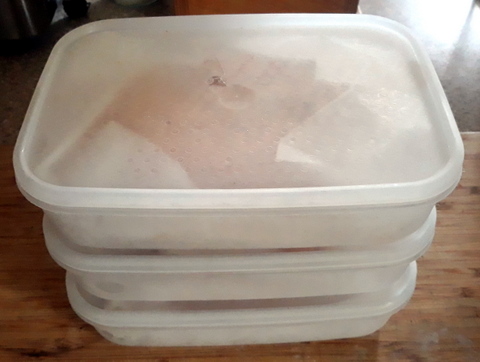
Chicken schnitzel halves, two per container separated by baking paper, packed by the butcher and placed in the freezer
What this translated into was a couple of things –
- First, before each shop we put a list together of what we needed, and
- Second, as a process for developing the list we went through an abbreviated pantry audit that included the fridge, freezer and any ancillary food storage areas.
This two weekly food audit not only identified what we had run out of and what we were getting low on, it also showed up where lower shelf life stuff (like fruit and vegetables and some food products) were getting close to their use by/best before date. So that not only did we know that they would need to be replaced but we could consume them before they got too old. This both reduced food waste and saved us money.
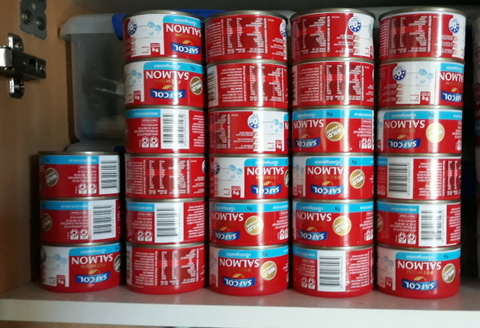
Newest tins on the right, to use take ones from the left!
After the shopping was completed, the new buys were put into appropriate storage (freezer, crisper, fridge or pantry) but placed so that the newer material went to the back and the older products or produce were in the front so that they would be used first. This ensured that we didn’t get any ‘dead spots’ in our food storage where products would be neglected and gently side past their ‘use by’ or ‘best before’ dates without us noticing, while the newer stuff got used straight away.
Another way to improve efficiency of using up food is to develop a menu plan for the week and then buy based on that. This does not work for us, however, because it means that you are using and buying smaller amounts and not taking into account food stored in bulk or semi-bulk amounts. I do some short-term menu planning based around the food we have in storage, using the idea of ‘peasant eating’ that is to say, ‘what do I have the ingredients to make’ rather than ‘what do I feel like eating’.
Our efforts in NBJ also resulted in us ceasing to buy certain products at all, just making them from scratch using our bulk stores, in particular flatbreads or tortillas, tinned beans and lentils (we cook and freeze the dried product), herb and spice mixes including stock powder, muesli and biscuits as well as (when I get there) loaves of bread and yoghurt. The amount and variety of cleaning agents we use has also been greatly rationalised and simplified.
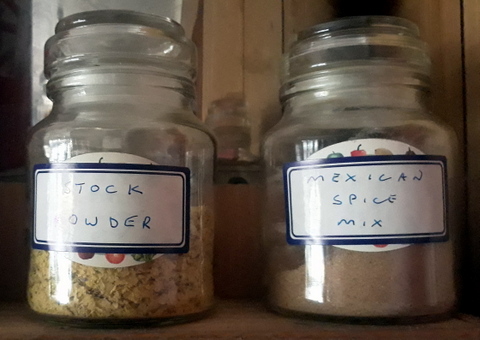
All-in-all the impact of NBJ on our life has been to simplify it, increase our resilience and reduce our spending, and that is always a good thing!
Join us on the NBJ Facebook Group for No-Buy July 2024!



